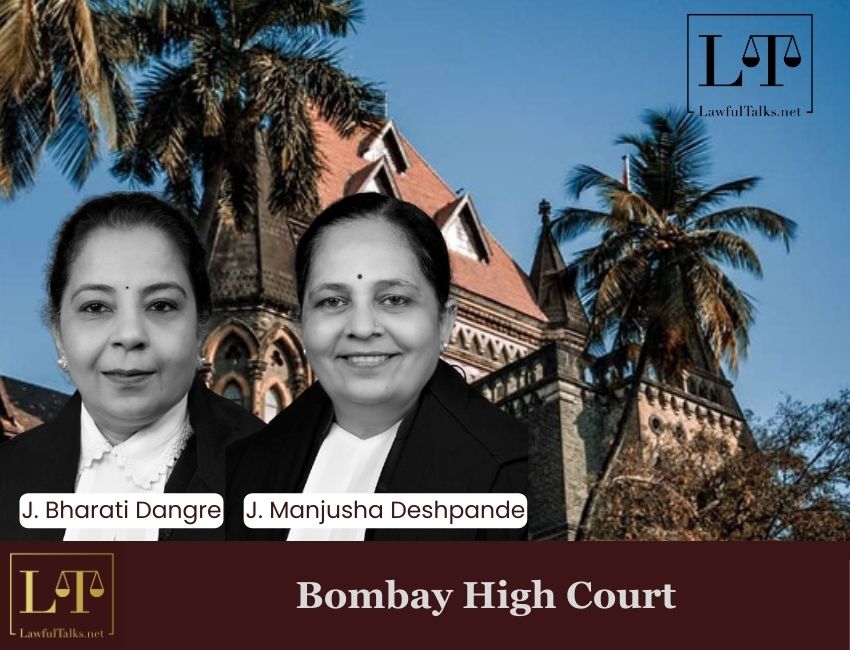Allahabad HC Sets Aside Afzal Ansari's Conviction, Allows Him to Continue as MP

The Bombay High Court, in a significant judgment delivered by Justice Bharati Dangre and Justice Manjusha Deshpande, quashed a detention order under the Conservation of Foreign Exchange and Prevention of Smuggling Activities Act, 1974 (COFEPOSA), highlighting the crucial principle of preventive detention, that there must be a "live and proximate link" between the alleged prejudicial activities and the necessity of detention.

The petitioner, Arun Mahajan, challenged a detention order dated January 25, 2012, issued by the Principal Secretary, Home Department, Maharashtra, under Section 3(1) of COFEPOSA. The detention order was based on allegations that Mahajan had undervalued seven second-hand cranes imported between 2007 and 2010, evading customs duty. Investigations by the Directorate of Revenue Intelligence (DRI) revealed that Mahajan allegedly declared a false weight for the cranes to avoid duties. Following these findings, Mahajan was arrested on November 2, 2010, under Section 108 of the Customs Act, 1962, and subsequently released on bail. However, the detention order came 15 months later, and its execution was delayed by more than a decade.
The petitioner’s counsel, Senior Advocate Rajiv Chavan, argued that the detention order violated constitutional safeguards due to “gross delay” in both its issuance and execution. He emphasized that the live and proximate link between Mahajan’s alleged prejudicial activities and the necessity of preventive detention was “snapped,” rendering the order invalid. He relied on the Supreme Court's observations in T.A. Abdul Rahman v. State of Kerala [(1990) AIR SC 225], which held that an unexplained delay in issuing or executing a detention order undermines its validity:
“When there is undue and long delay between the prejudicial activities and the passing of the detention order, the court has to scrutinize whether the detaining authority has satisfactorily examined such a delay and afforded a tenable and reasonable explanation as to why such a delay has occasioned, when called upon to answer when called upon to answer and further the Court has to investigate whether the causal connection has been broken in the circumstances of each case.”
The petitioner further contended that preventive detention, as an exception to Article 21 of the Constitution, must meet the threshold of urgency and necessity. Relying on Rekha v. State of Tamil Nadu* [(2011) 4 RCR (Cri) 21], counsel argued that such measures should be invoked only in “rare and exceptional cases.” Moreover, Mahajan highlighted that no evidence of further prejudicial activities had been recorded after 2010, and the Customs Act, 1962, provided an adequate legal framework to address the alleged violations.
The State, represented by APP J.P. Yagnik, defended the detention order, asserting that the delay was justified due to the complexity of the investigation, which involved analyzing voluminous documents and multiple statements. It was argued that Mahajan’s activities caused significant economic harm and posed a continued threat to national interests. However, the State failed to demonstrate any recent prejudicial conduct by the petitioner.
The court extensively relied on precedents to address the issue of delay. It observed that the Supreme Court in Suresh Mahato v. District Magistrate, Burdwan [(1975) 3 SCC 554] had stated that any “unreasonable delay” in executing a detention order, unless satisfactorily explained, casts doubt on the detaining authority’s “subjective satisfaction” and renders the order invalid. The judgment also cited Bhawarlal Ganeshmalji v. State of Tamil Nadu [(1979) 1 SCC 645], where it was held that:
“there must be a “live and proximate link” between the grounds of detention alleged by the Detaining Authority and the abode purpose of detention mainly the prevention of smuggling activities. We may in appropriate cases assume that the link is “snapped” if there is any long and unexplained delay between the date of the order of detention and the arrest of the detenu.”
Applying these principles, the court noted that the detention order against Mahajan suffered from significant delays at every stage. The alleged prejudicial activities occurred in 2010, and the detention order was issued in January 2012. Furthermore, its execution was delayed for over a decade due to ongoing judicial proceedings and the petitioner’s successful challenge in the Punjab and Haryana High Court, which stayed the order until November 2023. The court found that the State failed to demonstrate any pressing need to detain Mahajan after such an extended period.
The court also addressed the procedural safeguards under COFEPOSA, emphasizing that preventive detention is a “serious invasion of personal liberty” and must adhere strictly to constitutional requirements as per the law laid down in Sushanta Kumar Banik v. State of Tripura [(2022) 13 SCR 484].
The bench observed that the State’s reliance on voluminous documents as an explanation for the delay was insufficient. Additionally, the absence of prejudicial activities by Mahajan after 2010 further weakened the State’s case. It concluded that the detention order failed to meet the standards of immediacy, necessity, and procedural compliance required under the law.
Quashing the detention order, the court declared that:
“The order of detention deserve to be quashed and set aside, on two counts viz. its execution after more than a decade with a clear statement coming from the Respondent that there is no activity of the detenu which is found to be prejudicial and also on the ground that even when the order of detention was issued on 25/01/2012, it suffered from delay, which snapped the live link between the activities of the detenu which were alleged to be prejudicial at that relevant point of time and which were sought to be curbed by passing an order of detention.”
Case Details: Arun Mahajan V. State of Maharashtra (WP/8653/2024)
Advocates for the Petitioner: Mr.Rajiv Chavan, Senior Advocate a/w Zain Shroff, Suryansh Vaishnav
Advocates for the Respondent: Mr.J.P. Yagnik, APP
Asmi Desai
Advocate, High Court
Latest Posts
Categories
- International News 19 Posts
- Supreme Court 352 Posts
- High Courts 366 Posts




























































































































































































































































































































































































































































































































































































































































































































































